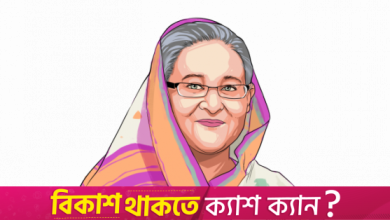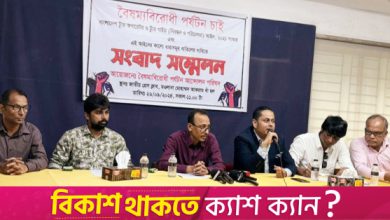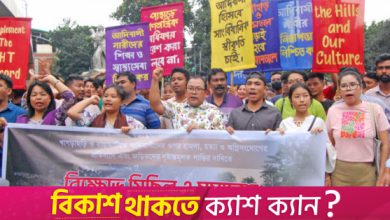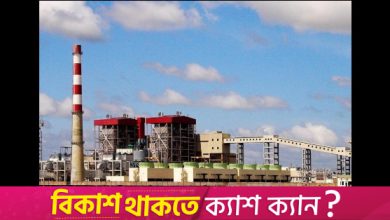Experts call for more transparency from interim govt


Environment, Forest and Climate Change, and Water Resources Adviser Syeda Rizwana Hasan yesterday emphasised that freedom, especially the freedom to access timely justice, should not be taken for granted.
Now that people “could finally speak”, she urged them to be constructive, define their focus, and listen to each other.
“The path to reform was the path to realising their dreams,” she said while speaking at a dialogue moderated by Zillur Rahman, executive director of CGS.
The Centre for Governance Studies (CGS) hosted the dialogue today at the Bangladesh Institute of International and Strategic Studies (BIISS) auditorium.
The dialogue featured guests who have been vocal about the oppression of the past regime and faced challenges because of their actions.
Prominent individuals from all walks of society shared the many ways they suffered and were discriminated against under the previous regime.
Speakers also focused on the sort of changes and reforms they would like to see in Bangladesh’s future, expressing general concern about the “apparent inaction” displayed by the government regarding recent societal unrest.
A need for more transparency from the interim government and a more inclusive approach came up in the discussion.
Zillur began by stating that for 15 years, people had fought for their dreams, often doubting they could be realised.
“Many had sacrificed their lives for these dreams. Over the past 15 years, all national institutions had been destroyed, and corruption had become endemic,” he said.
“Many had resisted the tyranny of authoritarianism from within the country, suffering as a result. Among those gathered today were individuals who had fought and suffered. Yet, the fight was far from over,” he added.
Munira Khan stated that the government needed to be more transparent and spend time on proper planning. Its spokespersons should communicate their activities and progress. She expressed hope that the interim government would hold a free and fair election.
Kazi Faisal Bin Seraj observed that shrinking civic space creates an information vacuum, making non-traditional media more important.
He noted that when he first began working in Bangladesh, the narrative of the economy was strong, but there were now questions about why NGOs and CSOs were not doing enough.
He emphasised that it was critical to understand the restrictive legal environment they faced.
Dr Badiul Alam Majumdar, head of the Election System Reform Commission and Secretary of SHUJAN, emphasised that citizens must seize the opportunity before them.
He highlighted the importance of everyone playing their part, or else the dream, spirit, and expectations would remain incomplete. He shared that he and his family had been discriminated against under both the Awami League and BNP governments.
Despite this, he believed that today presented an amazing opportunity and stressed the importance of unity, checks, and balances to prevent the misuse of power.
Didarul Islam Bhuiyan, member of the DSA Victims Network, recounted how he had been picked up after posting on social media about irregularities in relief measures during the COVID-19 lockdown.
He was interrogated for seven hours, accused of being a traitor and conspirator without evidence. He questioned why DSA cases had not yet been dropped, arguing that these “black laws” used to suppress people should be consigned to a museum.
Pritom Das, member of the Jatiya Nagorik Committee, shared his experience of being falsely charged with offending religious sentiments.
He was later arrested due to his political activism and social media posts, spending five months in jail. He recounted how communal violence in the region had targeted him, leading to social isolation as even friends and relatives stopped contacting him.
Rezaul Karim Rony, editor of Joban, emphasised the unrest in both the hills and the plains, pointing out that many people still acted like fascists after having lived under fascism for so long.
He called for true independence for the people and questioned what kind of independence they really sought. He shared his disillusionment with mainstream media, recounting an experience where he translated a significant report against a former Prime Minister, only to see no one else in the media dare to publish it.
Major Rezaul Karim, a former military officer who was discharged due to political reasons, shared his experience during the BDR killings when he was stationed with RAB.
He and his comrades had been denied permission to act, and afterwards, he was branded a terrorist, blindfolded, and interrogated. He spent five years in jail and stressed that injustice had been done against him.
Michael Chakma, an organiser with the United People’s Democratic Front, recounted being held in darkness for five years after his abduction.
He emphasised the inhumanity of the treatment he had endured and questioned whether his crime had been speaking out for the political rights of his people.
He called for a solution in the hill areas that did not involve military rule.
U Mimi Marma, special correspondent for IPNEWS BD, spoke from her perspective as a student and indigenous person.
She highlighted the ongoing violence and lack of justice for Indigenous people, particularly in the Khagrachari region, and expressed her frustration alongside her hope that justice would come in a new Bangladesh.
Kalpana Akter, executive director of the Bangladesh Centre for Workers Solidarity, shared how her work in fighting for workers’ rights was often suppressed, leading to surveillance, interrogation, and branding as a foreign agent.
She urged journalists to pursue the truth, even if it was difficult.
Khadijatul Kubra, a student at Jagannath University, described her experience of being arrested under the DSA, which paused her education and life for an extended period. Now that she could finally speak out again, she expressed her desire to work with others who had faced discrimination.
Umama Fatema, coordinator of Anti-Discrimination Student Movement, credited the people of Bangladesh for toppling the Sheikh Hasina regime and spoke about the sense of empowerment and ownership that female students had experienced during the protests.
Mamun Abdullah, liaison coordinator of Anti-Discrimination Student Movement, recounted how he was unable to stay in university dorms due to pressure and surveillance by the Chhatra League.
He expressed disappointment in the lack of consensus on human dignity in the nation and warned that the revolutionary spirit of the 2024 mass uprising might not manifest again if real reforms were not implemented.




